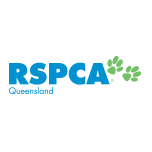Recently, a sick pelican was found in Eagleby by our Animal Rescue Officer, Sam. Normally pelicans like to keep moving, but this one was different. There was no movement. This poor pelican could barely hold its head up and didn’t fly away as Rescuer Sam got closer. Unfortunately, these are typical symptoms indicating a disease called botulism.
Botulism is a paralytic disease, caused by consumption of a toxin, produced by a bacterium called Clostridium botulinum. It affects all kinds of animals, but we commonly see it in wild water birds such as ducks, swans and even pelicans. Clostridium botulinum commonly occurs in aquatic environments such as wetlands and lakes. Outbreaks tend to be seasonal, usually in summer and autumn, when conditions that favor the growth of the bacterium occur. The bacterium proliferates when oxygen levels are low, environmental temperatures are high and large amounts of organic material such as rotting vegetation is present. The local environment becomes contaminated with the toxin which is then consumed by birds living in the environment.
Once ingested, the toxins cause gradual paralysis resulting in death without intervention. For birds, the first and most crippling effect is losing their ability to fly. Their wings become weak, unable to lift from their body, meaning they become land-bound. They then start to lose the use of their legs and are unable to hold their head up. They can even become unable to blink - which is sadly how far the disease had progressed for this poor pelican.
Animal Rescue Officer Sam, secured the pelican in one of our Animal Ambulances for transport. Right then, time was of the essence. Sam and her team raced the pelican back to the RSPCA Wildlife Hospital for immediate veterinary assistance.



